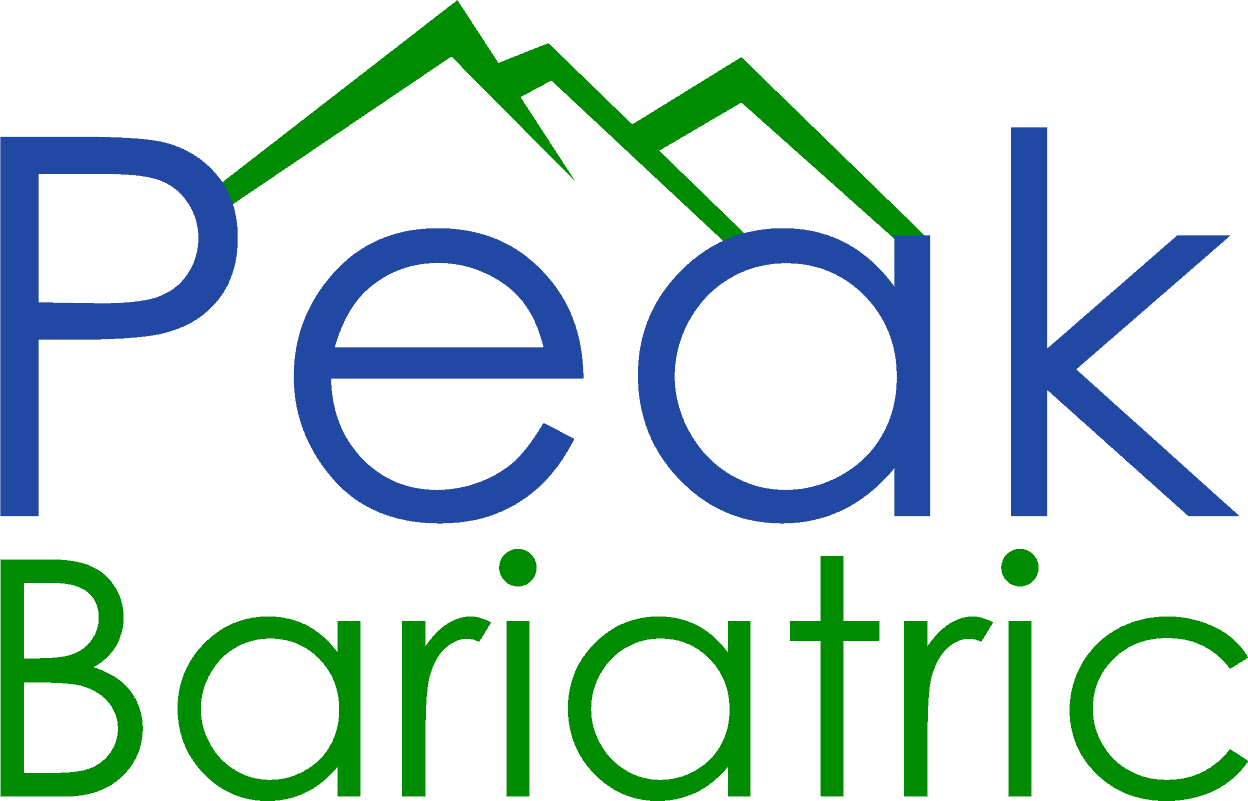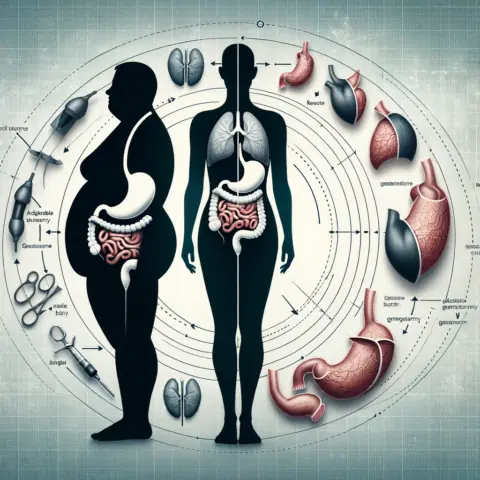Stepping into the world of bariatric surgery is a brave commitment towards a healthier you. At Peak Bariatric, we aim to make this journey smoother for our patients. One crucial aspect of this process is understanding the pre-surgery diet. It’s not just about eating less or cutting out junk food; it’s a structured plan designed to prepare your body for the surgery and subsequent weight loss.
The Purpose Behind the Diet
The pre-surgery diet primarily aims to:
- Reduce the size of the liver: A fatty liver can make the surgery challenging. By following the diet, your liver shrinks, providing surgeons better access to the stomach.
- Minimize surgery risks: A proper diet can reduce the chances of complications during and after the surgery.
- Ready the patient for post-surgery dietary changes: Getting used to a new way of eating before the surgery can make the post-surgery transition easier.
Components of the Pre-Surgery Diet
The specific foods and duration of the diet might vary, but typically, the diet is high in protein and low in carbohydrates, fats, and sugars. The main components include:
- Lean Proteins: This includes fish, poultry, lean beef, and soy products. They not only help in preserving muscle tissue but also aid in faster recovery.
- Vegetables: Fresh, steamed, or grilled, they provide essential vitamins and minerals without adding unnecessary calories.
- Liquids: Protein shakes and non-caloric drinks can keep you hydrated and full.
“It’s essential to adhere to the pre-surgery diet guidelines not just for the success of the surgery, but for your overall well-being.” – Dr. Nirmal Jayaseelan
Avoiding Certain Foods and Beverages
Just as there are foods you should focus on, there are also foods and beverages you should avoid:
- Sugary Foods and Drinks: These can increase the size of your liver, making the surgery more challenging.
- Fatty Foods: Foods high in fat can also increase the liver size and might lead to complications.
- Carbonated Drinks: They might cause discomfort and bloating.
- Caffeine: It’s best to reduce the intake as it can be dehydrating.
To get a clearer picture of what a good pre-surgery diet looks like, this detailed guide can be of great help.
Importance of Following the Diet
While you might be eager to get the surgery done and move towards a healthier life, it’s essential to understand the importance of each step. The pre-surgery diet isn’t just a recommendation; it’s a requirement. Skipping this step or not taking it seriously can lead to complications during the surgery. At Peak Bariatric in Dallas, our experienced surgeons like Dr. Clayton Frenzel emphasize the necessity of this diet for the safety and success of the procedure.
Not sure if you’re eligible for the surgery? Check here to see how you can get your doctor to approve weight loss surgery.
In the next section, we’ll delve into how to adhere to this diet, tips for managing cravings, and how to mentally prepare yourself for this change.
Tips to Adhere to the Pre-Surgery Diet
Sticking to a strict diet can be challenging. But remember, this isn’t just about the surgery – it’s about laying a foundation for lifelong health and well-being. Here are some tips to help you remain consistent:
- Education: Continuously remind yourself why this diet is vital. Familiarize yourself with bariatric procedures to understand the importance of pre-operative preparation.
- Plan Ahead: Stock up on the foods you’ll be eating, so you aren’t tempted to cheat. Remove any junk food from your pantry to reduce temptation. For a tasty, bariatric-friendly meal idea, consider this grilled chicken breast with sweet potato and green salad.
- Stay Hydrated: Drink plenty of water throughout the day. Not only does it help you feel full, but it also aids digestion and can curb unnecessary snacking.
- Seek Support: Joining a support group or discussing your journey with a friend or family member can be beneficial. Sharing experiences, challenges, and advice can be immensely encouraging.
- Consult Frequently with Your Doctor: Regularly check in with your physician, like the dedicated Dr. Leah Dill, to track your progress and discuss any concerns.
Handling Cravings and Emotional Eating
It’s natural to face cravings, especially when you’re suddenly limiting your food intake. Here’s how to deal:
- Distraction: When a craving hits, divert your attention. Engage in a hobby, go for a walk, or read an article, perhaps about gastric bypass and the role of exercise in weight loss.
- Wait it Out: Often, cravings pass if you give them some time. Wait for 15-20 minutes before deciding if you genuinely want to eat.
- Healthy Alternatives: If you’re genuinely hungry, opt for a nutritious snack. Always have a list of approved foods handy.
- Understand Emotional Eating: Recognize if you’re eating out of boredom, stress, or other emotions. Finding healthier coping mechanisms, like journaling or meditation, can be beneficial.
Financing the Pre-Surgery Diet and Procedure
If the financial aspects of this journey are a concern, you’re not alone. Thankfully, financing options are available to make this process more manageable. Additionally, understanding the cost of procedures, like the gastric sleeve surgery in Dallas, can help you prepare better. Always check with your insurance options too, as many policies cover bariatric procedures.
For a comprehensive understanding of your journey, Peak Bariatric’s ultimate guide to weight loss surgery offers insights into making the right choices and being well-prepared.
Debunking Myths: Pre-Surgery Diet Misconceptions
In our journey of understanding, it’s crucial to address some widespread myths surrounding the pre-surgery diet:
- “It’s just a formality.”
The pre-surgery diet isn’t a mere procedural formality. It plays a pivotal role in ensuring the liver shrinks in size and makes the surgery safer and more efficient. Detailed resources, like the ones discussing the difference between lap-band and gastric sleeve, highlight the intricacies of these procedures and how a patient’s pre-op condition can influence outcomes. - “I can cheat a bit; it won’t make a difference.”
Cheating on your pre-surgery diet can lead to complications during surgery. It’s essential to understand that this diet is prescribed for a reason. It ensures that your body is in the right state for the procedure. - “I’ll lose too much weight during the diet, making surgery redundant.”
While weight loss does occur, the diet’s primary purpose is to prepare your body for surgery. Surgical interventions like the gastric sleeve offer long-term weight loss solutions, which might be hard to achieve with dieting alone.
The Bigger Picture: Holistic Health
The pre-surgery diet is just a glimpse into the commitment required after bariatric surgery. It’s a lifelong commitment to health. From exercises tailored for limited mobility patients at Peak Bariatric to understanding the mental health dimensions post-surgery, it’s about a holistic approach.
Meeting the Team Behind Your Journey
Your pre-surgery diet, the surgery, and the post-op care involve a team of dedicated professionals who are committed to your health and well-being. Peak Bariatric’s Dallas location is home to renowned physicians like Dr. Clayton Frenzel and Dr. Nirmal Jayaseelan, ensuring that you’re in expert hands.
Conclusion
Preparing for bariatric surgery goes beyond just physical preparation. It’s about gearing up mentally, understanding the nuances of the journey, and building a support system. The pre-surgery diet, while a small part of the journey, plays a monumental role in your overall surgery success. At Peak Bariatric, the goal is to offer comprehensive care, guidance, and resources every step of the way. Embracing this diet with commitment and understanding ensures not just a successful surgery but sets the foundation for a healthier, brighter future.
Pre-Surgery Diet Key Takeaways
- Topic: Understanding the Pre-Surgery Diet for Bariatric Patients.
- Pre-Surgery Diet Importance:
- Ensures liver shrinks in size.
- Makes surgery safer and more efficient.
- Prepares body for the operation.
- Myths Debunked:
- It’s not just a formality.
- Cheating on the diet can lead to complications.
- The diet’s goal isn’t just weight loss but preparing the body for surgery.
- Holistic Health:
- Pre-surgery diet indicates the lifelong commitment post-surgery.
- Emphasizes holistic health including mental well-being.
- Peak Bariatric Team:
- Offers dedicated professionals and renowned physicians.
- Provides comprehensive care, guidance, and resources.
- Conclusion:
- Preparation for bariatric surgery is both physical and mental.
- The pre-surgery diet is a foundational step towards a successful surgery and a healthier future.







